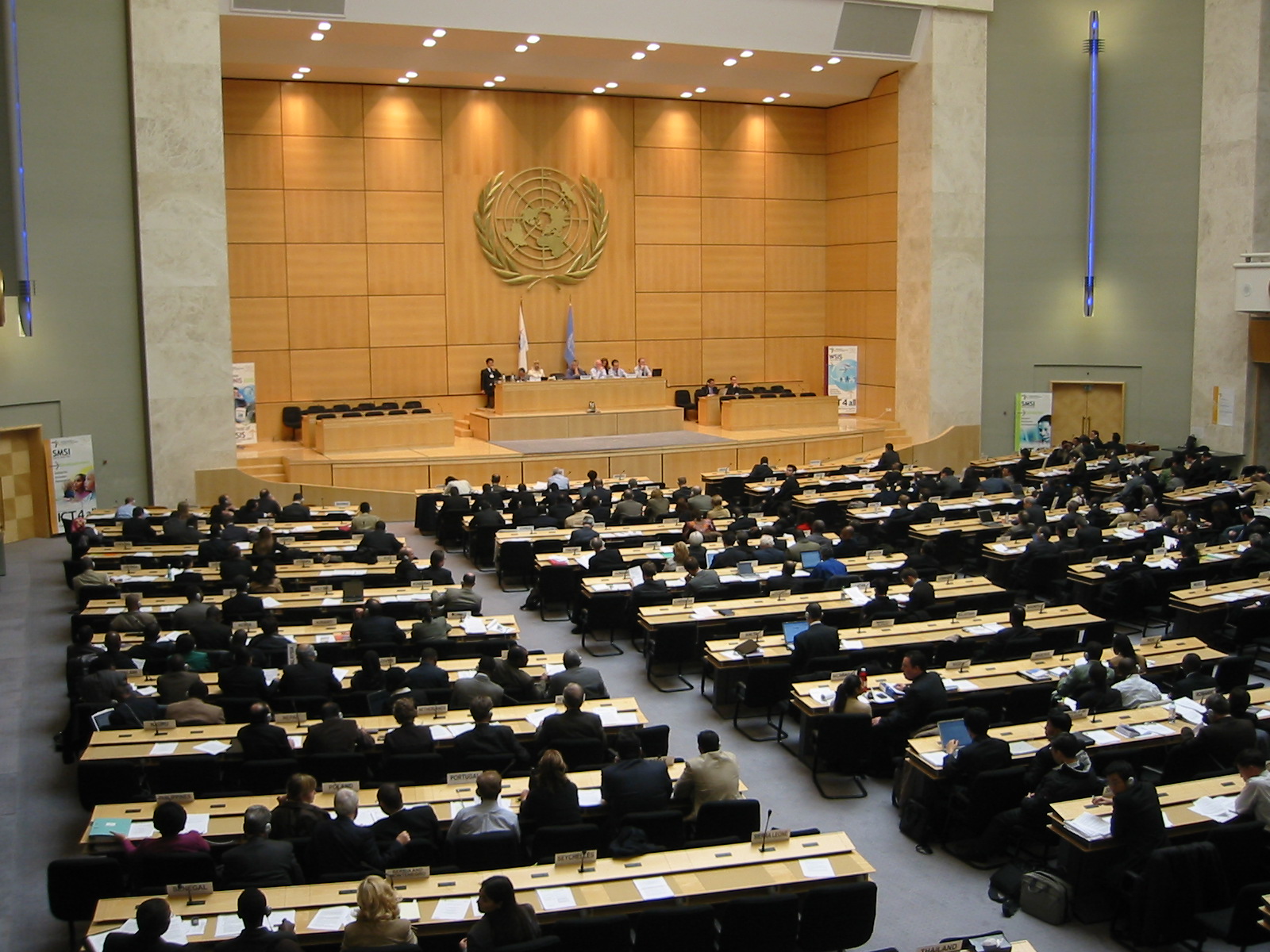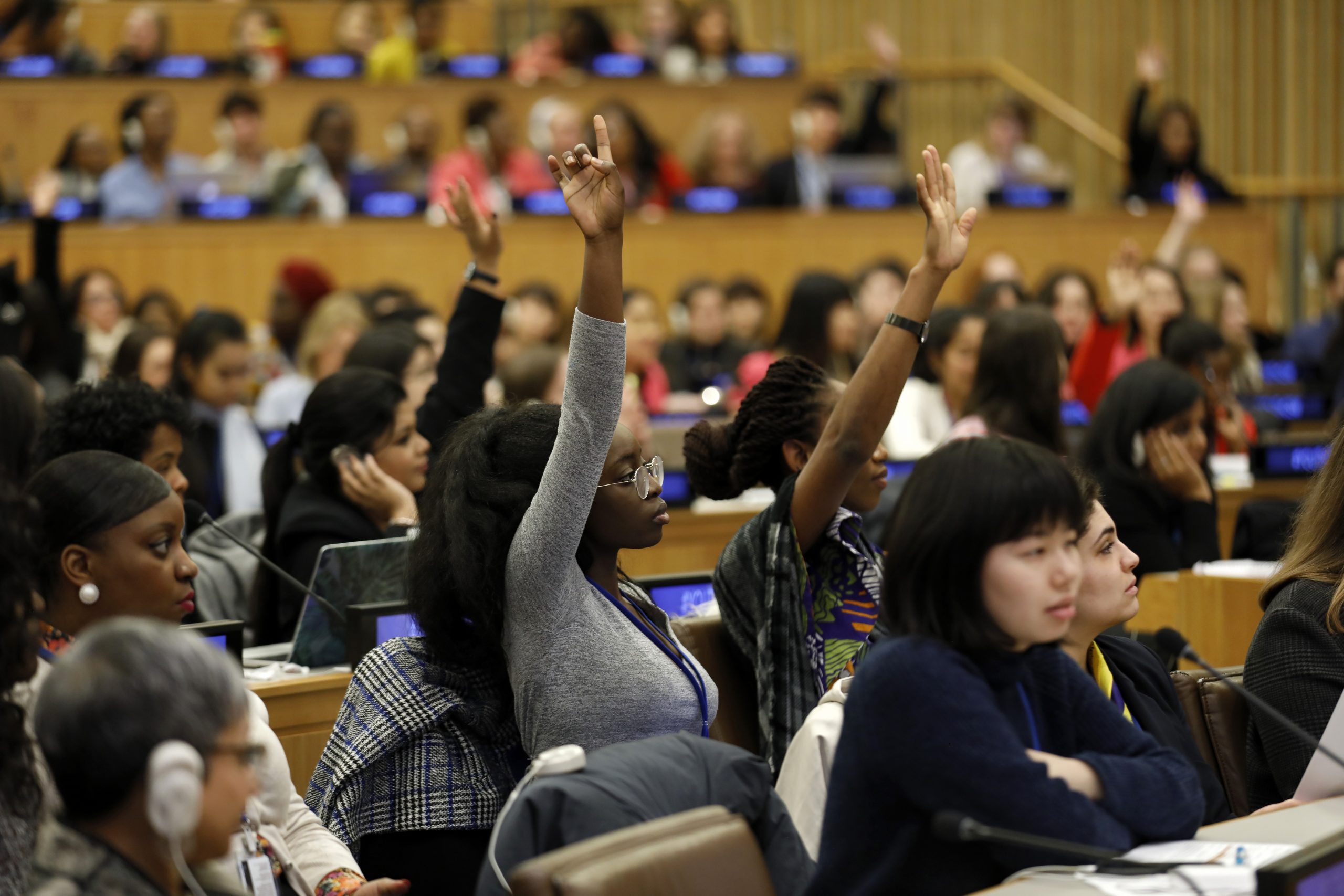请点此阅读中文版
قم بتنزيل الدراسة باللغة العربية
On 12 March 2020, ISHR launched a new study, ‘Intimidation and its Impact on Engagement with the UN Human Rights System: Methodological challenges and opportunities’.
In recent Secretary-General reports and statements by the Assistant Secretary-General, there has been increased concern raised about the issue of self-censorship, i.e. the phenomenon of engagement with the UN being inhibited due to severe intimidation occurring in highly restrictive environments.
‘Perversely, there are countries not cited in the annual report of the Secretary-General on Reprisals, where the intimidation has “worked” to sustain inhibition and it is very difficult or impossible for civil society to engage with the UN at all. In other countries still, there may be some reported cases of reprisals but these don’t tell the full story because many more defenders are intimidated from engaging,’ said Madeleine Sinclair, ISHR New York Office Co-Director and Legal Counsel. ‘This phenomenon is deeply concerning in and of itself but an additional concern is the difficulty inherent in monitoring it, documenting it, and thus seeking accountability for it,’ Sinclair added.
The study responds to this challenge and proposes methodological approaches to strengthen the future capacity to measure and understand how intimidation tactics – both blunt and subtle – effectively inhibit human rights reporting and action, thus reinforcing impunity for States’ abuses.
The study contains a number of key recommendations including that the UN should:
- develop more impact analysis that assesses the positive outcomes resulting from the use of UN human rights mechanisms, and disseminate and popularise any impact analysis that exists. The system needs to give defenders a basis for making judgments about whether to go to the trouble of engaging.
- develop and strengthen new tactics for raising awareness about UN mechanisms in more closed and repressed countries. The more repressive the situation, the less information is available to people about the potential of UN mechanisms.
- acknowledge the structural inequities that make it more difficult for some victims and activists to access UN mechanisms and make an extra effort to compensate for them, by encouraging engagement and offering protection to those who are more isolated or marginalised.
- systematically track cooperation, for example by creating a database on cooperation which should form the basis of regular quantitative reports on cooperation, and which could also track deterioration or improvements from year to year.
The study was launched in a Facebook Live event on 12 March 2020. The event was livestreamed on CIVICUS Facebook page and recorded for ISHR’s Youtube channel.
During the discussion, Azadeh Pourzand, Human Rights Researcher at Impact Iran shared that while engaging with the UN and rights groups abroad is critical for Iranian defenders, they often risk heavy charges and censorship to the point that they don’t engage at all, and are not even aware of potential benefits of engaging. Susan Wilding, Head of Geneva Office, CIVICUS: World Alliance for Citizen Participation warned that ‘intimidation is often a precursor to more harmful restrictions and an alert that should be taken seriously as it could lead to further harm to civil society’. ISHR’s Human Rights Council Programme Manager, Salma El Hosseiny, emphasised that ‘accountability needs to look beyond the visible actions taken by States to repress defenders. States must also be called to account for the ‘quieter approaches’ they use to intimidate defenders from engaging with UN.’ Peggy Hicks, Director, Thematic Engagement, Special Procedures, and Right to Development Division, OHCHR, agreed with the study’s conclusion that the political costs for States who do not cooperate with the UN and block civil society engagement must be raised. On the issue of raising awareness of the benefits of engaging with the UN, Hicks also emphasised the role of civil society in this regard.




